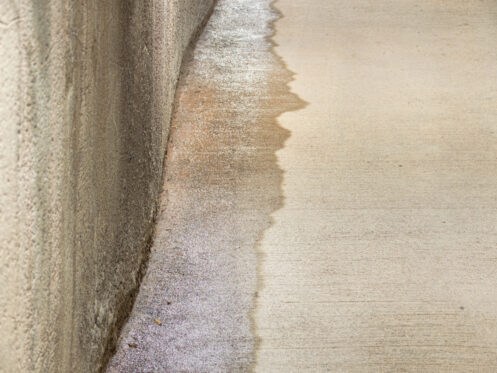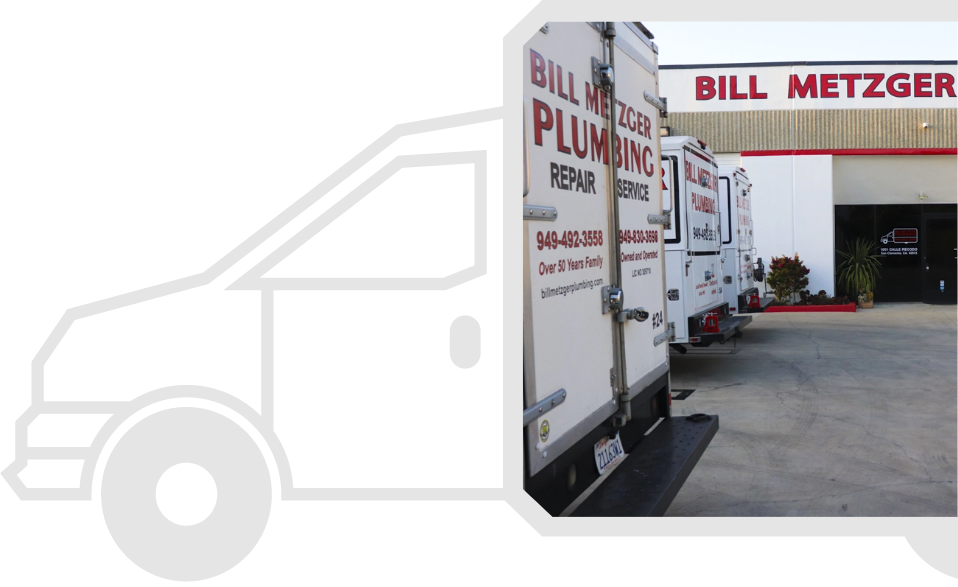A slab leak happens when the plumbing that runs underneath your foundation begins to leak. Either the water pipes or a sewer line might develop the problem. As a result, water could make its way into your house. Also, you could end up with serious damage to your property. The more you know about slab leaks, the better you can guard against them and recognize when they occur.
Common Slab Leak Causes
Slab leaks can happen for a number of reasons. Some of them may be within your control, and others are simply a fact of life. Even though you can’t protect your property from every cause of slab leaks, awareness is key. When you know that you’re at risk, you can pay more attention in hopes of catching a slab leak before the damage spreads.
Ground Changes
You might think of the ground beneath your house as a solid, permanent thing, but that’s not always the case. The soil on which your house sits can shift over time. Erosion is one common cause. Water that flows underground can affect the soil as well. In more dramatic instances, an earthquake may cause serious changes to the ground.
Some soil is considered expansive. That means that its volume changes rather significantly when it gets wet. It then contracts as it dries. As a result, expansive soil experiences frequent shifts.
No matter the cause, changes in the soil can affect the pipes beneath your foundation. The shifting ground may put pressure on the pipes so that they kink or bend. In time, a leak may develop.
Improper Installation
Whenever you are undertaking a new building project, you’ll want to hire an experienced plumber to install your water and sewer lines. That’s because faulty installation can lead to serious problems down the road.
Poor pipe installation is a frequent cause of slab leaks. If the material gets damaged during the installation process — for example, it gets dented or bent — that can weaken it. Over time, the pipe may start to leak.
A similar situation can happen during other phases of the construction process. One of your builders may inadvertently cause damage to the pipes that have already been laid. The result may be the same: a slab leak that springs up at some point.
Pipe Abrasion
Your plumbing can experience abrasion from the inside or the outside. Abrasion happens when something rubs or scrapes against a pipe. In time, that can wear away the material. The pipes may develop leaks as a result.
Abrasion that happens from the inside out may be caused by debris that moves through the pipes. For example, foreign items that get washed down the drain with your wastewater can cause abrasion.
From the outside, one pipe may rub against another, or a tree root may start to press up against a pipe. Also, pipes may experience abrasion from nearby building materials. Common culprits include concrete and gravel as well as wood floor joists. Hot water pipes are more likely to experience abrasion. The high temperature of the water causes these pipes to expand and press against the surrounding surfaces.
Water Issues
The quality of the water that flows through your pipes can affect their longevity. Both the mineral content and the pH level can play a role.
Hard water contains a high level of minerals like magnesium and calcium. These can leave deposits along the inside of your pipes. It can also corrode the metal. Corrosion wears away at the material and compromises its integrity.
Overly soft water can also be problematic. This may happen if you have a water softener that isn’t adjusted to the proper settings. Water is considered soft when it has a low level of mineral content. If the level falls too low, the water may leach minerals from the metal pipes. That will weaken them.
Acidic or alkaline water can also be an issue. Acidic water can be particularly rough on pipes. The pH level of water often corresponds to its hardness level. Hard water is often alkaline, and soft water is often acidic.
Old Plumbing
Finally, slab leaks are frequently the result of the passing years. The longer your plumbing has been in use, the more prone it may be to developing leaks. Copper and galvanized pipes, for instance, may become corroded over time. Plus, as the years go by, the effects of other small issues, such as soil shifts, hard water deposits and tree roots, may start to add up. It’s not uncommon, then, for older homes to experience slab leaks.
How to Recognize a Slab Leak
The signs of a slab leak often creep up inside your home. Perhaps you’ll discover a wet spot on the floor as obvious evidence of a leak. Cracks or water stains are more subtle signs. So, too, are unpleasant smells that emanate from the floor. You might also notice that one area of the floor feels unusually warm.
Sometimes, homeowners can hear the sound of water running. Other times, they notice that the water meter continues to rise even when all the faucets and water-using appliances are turned off.
Some signs of a slab leak may show up outdoors. There may be puddles in the yard near the house’s foundation. The grass or shrubbery in that area may be growing especially well. The foundation itself may start to show signs of damage.
While these signs may give you a clue that you are dealing with a slab leak, you should call a professional to give you an official diagnosis. Plus, a plumber can identify exactly where the leak is occurring.
What to Do About Slab Leaks
Your San Clemente plumber has several options for dealing with slab leaks. In some cases, the plumber may recommend tearing up the concrete in one spot and performing a pipe repair in that specific area.
At other times, it may be better to reroute a section of pipe or lay all new pipes. Often, that work can be performed without going through the flooring and the foundation. Rather, tunnels can be dug for the project and then filled back in once the plumbing job has been completed.
Your plumber may also recommend a trenchless approach to plumbing repair. The plumber may perform pipe lining, which adds an epoxy liner to the inside of your current pipes. Another option is pipe bursting, which lays new pipes through the current lines and breaks away the old ones in the process.
Bill Metzger Plumbing has the solution for all of your plumbing problems. In addition to slab leaks, our plumbers can also handle your kitchen and bathroom fixture installations and pipe repairs. We work with sump pumps, sewer lines, drains and water heaters. If you need a new toilet, water filter or garbage disposal, contact our team. We’ve been in business for over 50 years and offer a satisfaction guarantee for all our customers.
Call Bill Metzger Plumbing today to discuss leaky pipes or any other plumbing problems in San Clemente and the surrounding area!



 Today
Today 